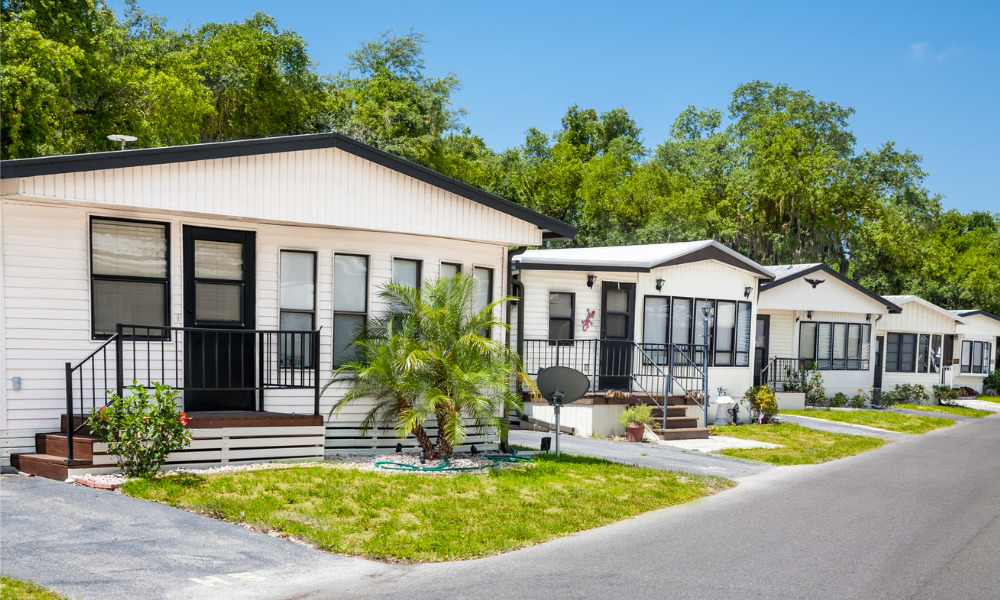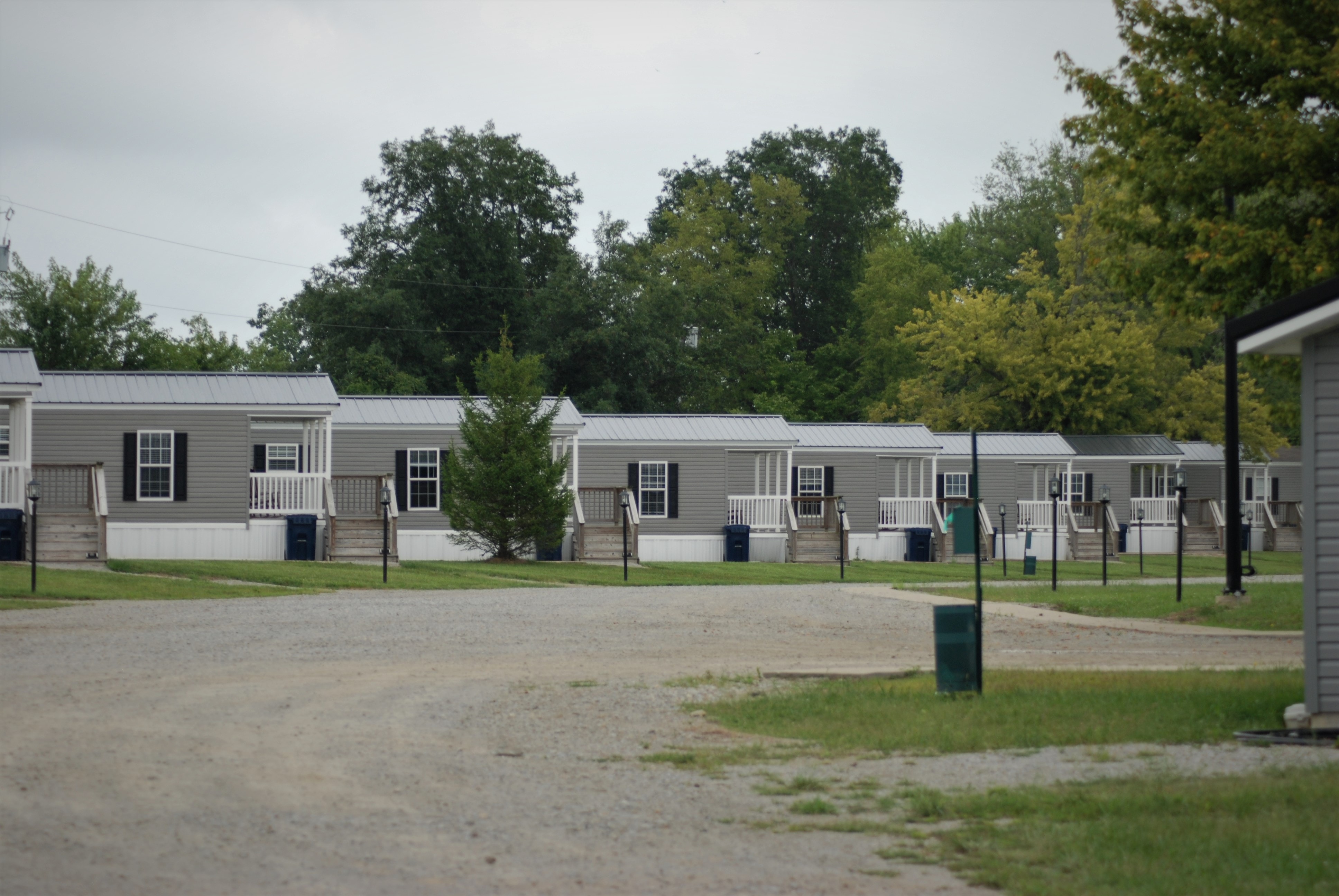Mortgage rates on mobile homes are dependent on various factors, such as which mortgage option you get. Here is everything you need to know

For many prospective home buyers, breaking into the housing market remains out of reach. This is where mobile homes—also referred to as manufactured homes—can provide a more affordable and flexible alternative. After all, the average cost of a mobile home in the US was just under $88,000 at the end of 2022.
Mortgage rates on mobile homes depend on how much you put down as collateral, your home loan terms, and your FICO score. Mortgage rates can be anywhere from 4% and 24%.
To help you determine your mortgage rate, it is important to understand the definition of a mobile home and which home loans are available to you.
Here is everything you need to know about mortgage rates on mobile homes.
Mortgage rates on mobile homes: What are mobile homes?
The terms for mobile, manufactured, and modular homes are often used interchangeably.
The definition for mobile home is determined by when it was constructed. Homes built in factories before June 15, 1976, are known as mobile homes. That was when the US Department of Housing and Urban Development (HUD) enacted the National Manufactured Housing Construction and Safety Standards Act.
Manufactured homes, on the other hand, are essentially mobile homes built after June 15, 1976.
The average cost of a mobile home is between $10,000 and $50,000. Key features of mobile homes include the following:
- Built before June 15, 1976
- Built in a factory before being delivered to the property, fully constructed
- Usually built on a metal frame, i.e., do not have crawl spaces or basements
- May have tie downs rather than a permanent foundation
Typical sizes for mobile homes are:
- Single wide: between 500 and 1,000 square feet
- Double wide: between 1,000 and 2,200 square feet
Mortgage rates on mobile homes: Current interest rates
As with any home loan, mobile home mortgage rates vary based on several factors. Some of these factors depend on the wider economy. Others are based on factors under your control such as your credit score, downpayment amount, and type of home. Whether you are buying the land will also affect the amount you pay.
What are the mortgage options for mobile homes?
After deciding on your mobile home’s features and where you want to place it, you will have to determine how to pay for it. When financing a mobile home, there are some options to consider.
You can, for instance, get a home loan from the same sources as traditional mortgage, like FHA loans and VA loans. You can also seek out specialized manufactured home loans through Fannie Mae and Freddie Mac.
Some of these mobile home financing options give you longer repayment terms. If you take a less traditional path—chattel or personal loans—you may get a shorter term, depending on your situation. Let’s look at the different mortgage options for mobile homes:
- FHA loans
- Fannie Mae
- Freddie Mac
- VA loans
- Chattel loans
- Personal loans
Here is a closer look at each:
1. FHA loans
HUD offers mobile home loans through the FHA, or the Federal Housing Administration, loan program. This program includes Title I and Title II loans.
Title I
This home loan can be used to finance the purchase of a new or used manufactured home and refinance a manufactured home purchase, among others. It can also be used for a combination purchase of both the home itself and the lot. You can use these funds to repair, alter, or improve a manufactured home.
Title II
This loan program insures loans that you can use to finance a qualifying manufactured home and the land, if you meet certain requirements. For instance, a Title II loan can be used if you live in the manufactured home as your primary residence. Title II loans cannot be used for manufactured homes on leased land in mobile home parks or manufactured home communities.
2. Fannie Mae
To qualify for the Fannie Mae MH Advantage program, you must meet certain construction, architectural design, and energy efficiency standards, similar to site-built homes. These home loans come with 30-year financing. You might also be able to secure them with a down payment as low as 3%. And compared to most traditional loans for manufactured homes, interest rates on MH Advantage mortgages are usually lower.
3. Freddie Mac
Freddie Mac offers conventional financing for manufactured homes through its Home Possible mortgage program.
One option you have here is a fixed-rate mortgage of either 15, 20, or 30 years.
Another option is a 7/6 or 10/6 adjustable-rate mortgage.
You might also be able to secure a home loan with as little as a 3% down payment. In some cases, you may be able to use a gift or grant money to help you cover your down payment.
4. VA loans
If you are part of a military community, you might qualify for a VA loan. This is a loan insured by the Department of Veterans Affairs.
You can get a VA loan to purchase a manufactured home and put it on land you already own.
Other options include buying the home and land at the same time or refinancing a home you plan to transport to land you own. Lenders typically offer up to 100% financing on manufactured home loans if you meet certain requirements.
5. Chattel loans
This is a special type of personal property loan you can use to buy a mobile home. These loans are designed for financing costly vehicles such as boats, planes, farm equipment, and, yes, mobile homes, where the property guarantees the loan. You do not have to own the land that your home will be on. This is another reason why chattel loans are a popular option for home buyers who want to rent a lot in a manufactured home community.
6. Personal loans
Because mobile homes are considerably cheaper than traditional properties, you might be able to finance your mobile home purchase through a personal loan. They are also quite flexible.
But be careful: interest rates on personal loans tend to be considerably higher than other loan types like auto loans or mortgages. The upside is that you will not have to provide collateral, meaning you will not lose your home if you default. The application process also tends to be shorter.
How long are most mobile home loans for?
While it depends on the terms you can secure, most mobile home loans have a maximum repayment term of 20 years (for single-wide home and lot).
What is the average credit score needed to buy a mobile home?
The average credit score needed to buy a mobile home is between 620 and 680. In fact, most mortgage lenders require a minimum credit score of 580 to 620 to purchase a mobile home. Most of the time, 580 is the minimum credit score for manufactured home loans. However, you may still be able to get financing with a special program and lower score, although these often require a larger down payment.

What is the oldest mobile home that can be financed?
Typically, mobile homes built after 1976 can be financed. To meet mortgage lending guidelines, manufactured homes must have HUD tags. These tags are certifications stating that the manufacturer has complied with safety standards created by the HUD.
The HUD tags came into law on June 15, 1976. While HUD is the only agency that has this requirement, most lenders also follow the HUD guideline.
Before the law in 1976, manufactured homes were prone to safety issues such as wiring and electrical problems that could cause home fires.
Mortgage rates on mobile homes: are loans hard to get?
Lenders differentiate between mobile homes that are truly moveable and manufactured homes as real estate. As mentioned, a manufactured home is basically a mobile home that was built after 1976 that has HUD tags complying with certain codes.
With manufactured homes, it is possible to get traditional mortgages like VA loans or FHA loans. However, because these homes can depreciate, lenders are less likely to give you a loan with competitive rates. On the other hand, in areas where more Americans live in mobile homes, it is likely easier to secure more favorable financing.
Mortgage rates on mobile homes are, like traditional mortgages, dependent on various factors. Some are within your control; others are determined by the wider market.
Understanding the definition of a mobile home and certifications is an important first step. Next, it is important to know the different mortgages available to you. Remember: the more knowledge you have, the better off you will be.
If you need help navigating mortgage rates on mobile homes, then take the time to look at the mortgage professionals we highlight in our Best of Mortgage section. Here you will find the top performing mortgage professionals, including mortgage loan officers, across the USA.
Have experience with navigating mortgage rates on mobile homes? Let us know in the comment section below.



